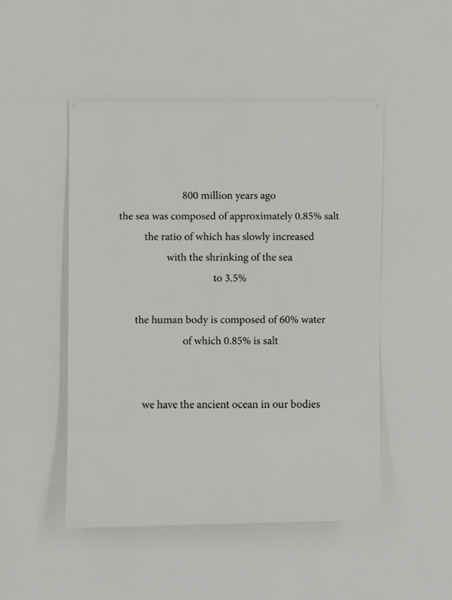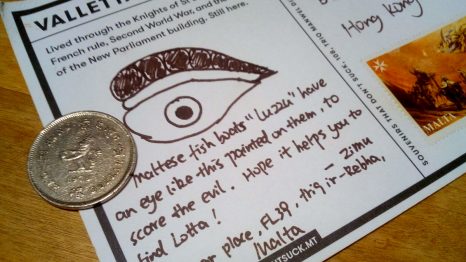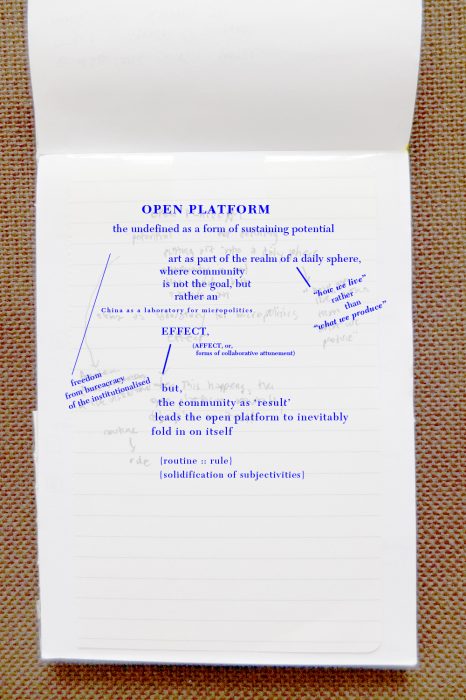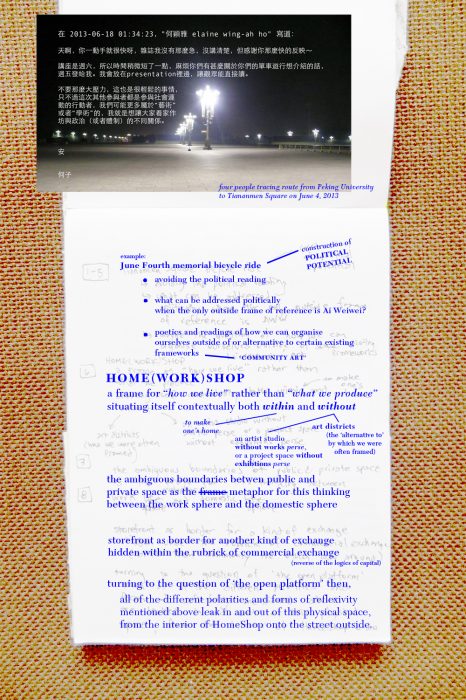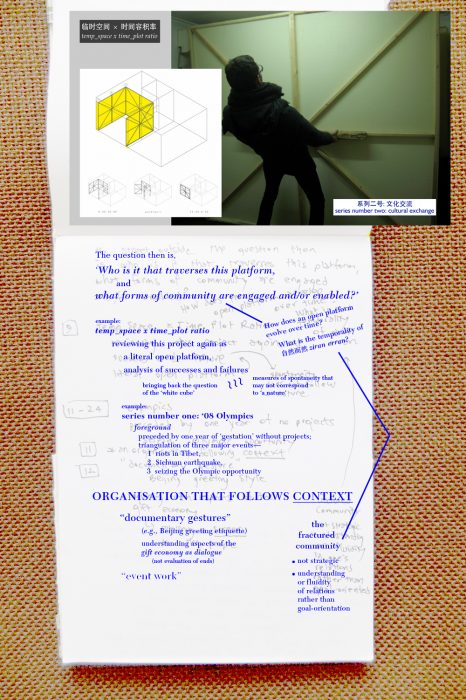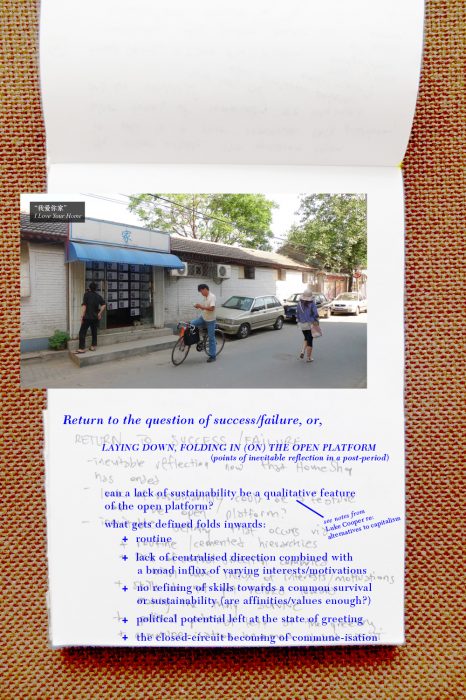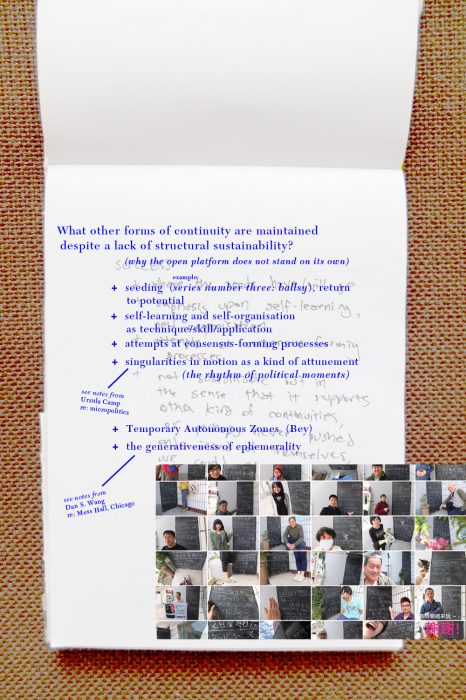Activism is increasingly instrumental, meaning it’s a form of power that is tied to the logic and algorithm of the status quo. This makes activism, even in the search for justice, a creature of the status quo, which renders hope and justice, as ironic as that sounds, a creature of the things we’re trying to leave behind.
— Dr. Bayo Akomolafe on Slowing Down in Urgent Times
it awoke me from sleep, the thought. A correction. something that clarified the feeling of not wanting to forgive, or not being able to. it’s trite, but three had always been my breaking point in this series of incursions, especially in those cases when there has been a latitude of attempted understanding and reasoning in between. the recipient of the gaslight, on the other hand does not calculate. how much is enough? the arbitrariness of numbers is probably less reasonable than the process of enduring or the tenacity of tolerating or the act of forgiving. actually on a certain level, it would be unreasonable——no?——to say to a friendship, to love, that i do not accept this anymore. right? W says there is no reason to 絕交 and we need time to learn and understand one another. of course. but what if i say simply that i am unable to continue like this? i do not like to count, but something keeps ticking. was it that which woke me from sleep?
perhaps it was the sudden clarity of watching an awkward transpiring of a series of very reasonable utterances of ‘not quite loyal’ words. the crispy field recordings of an anthropocene, brown noise wilderness that had kept me unconscious before came back again through the reverse journey from sleep into a dream-like scenario. i am in the post-apocalyptic game which we had romanced together last summer. so i am alone, but reflecting upon relationships that are perhaps no longer possible, and there is something forlorn and undone about this, though that’s what apocalypse is really. it’s drizzling and murky here all the time, here and there, we woke into dream and reality is simply a matter of perspective. it’s exactly that we argued about this, a simple difference of experience about something that happened in the past. you brought it up because you were hurt and disappointed, but what is meant by ‘not quite loyal’ is that hurt is prickly and dishonest if it only cowers behind rage. it’s reasonable, yes, like when i reason with myself that forgiveness is a higher ground. i’ve still never gotten there, still on game one(放下,不是放棄,而不是失去), too short of an attention span for mantras.
how does she keep forgiving? it’s a questionably positive character trait these times around, a puzzle to play on both sides, like when S describes M’s bad quality of not being able to see anything negative of anyone else. I thought when she said it, oh, how strange that is! What’s so wrong with roses? But anyway, I am not M nor your ex-girlfriend, not so forgiving and not so resilient, maybe not so tolerant, not so enduring. i don’t want to calculate, but don’t know how to bear the unfair exchange of a wound for a blow, even if understand how I may be implicated in its opening. I am sorry, even, that I said something awkward and ambivalent when we played the game that time, but wasn’t it obvious that we were in the grey and murky chapter where awkward and ambivalent things are uttered? Is being sad and disappointed a violence already inflicted, with reasonably violent returns? That is the ambivalence of saying stupid things that you realise are stupid in the midst of voicing them, but there they are, your mouth is open, stupidity lays before you just as the person in front of you, the one who receives it while listening with an unwittingly ever so slightly peaked (piqued?) eyebrow. The person in front of you doesn’t say anything in this moment, of course——that’s what ambivalence does; it delays time in the staccato of its complexly unfurling hesitations, though the simultaneous folding in and folding over of affect leads to other arhythmic utterances for which connections are astray and hence may also be categorised as stupid. ‘retarded’ is a politically incorrect term these days, but it is exactly about the mismeasure of time rather than being wrong or right per se. Ambivalence is fair. Its slowness is an emphasis upon space rather than its surrounding points and prickles.
justice requires calculation. but i’m no heroine, and it’s always a bit more complicated than that.
Posted by 丫 | reply »小船 Boat
With the exception of one fateful date, the four other exercises that I designed for Visual Diary Archive were each put together with a specific person in mind. I don’t speak to any of them so often anymore, and with distances, it sometimes becomes difficult to know where and how to begin again. Words don’t always bridge gaps, and perhaps neither do images, but if a series of exercises incite certain actions, I wonder what new thoughts, imaginations or understandings may be filled in the spaces between us.
The other quandary or surprise this brings us is the question of participation. It was because of a lack of general participation that I decided to ask a single person to respond to the exercises for me, and since each exercise had also been addressed to a singularity, it somehow made sense for this text-based response to be as well. So this is for Boat——less far, but also some distance away. I thought we would be connected by the expanse of sea next to our cities, but after checking the map I realised that the water where you are has a different name than the water where I am, even if water is fluid and I don’t want to believe it has bounds.
…
Nina and Asako made a work together in 2014 called The soup of a body past: notes on evaporation. Here is an image of the text that was printed and hung in the space:
And so I think now, along with Fotini and pictures of words, of the similarity between water and thoughts flowing between us, like ancient salts that both wound and heal us over time. Do you know the English idiom about rubbing salt into someone’s wounds? It means to make a bad situation worse, to aggravate it.
When we talked recently about togetherness, about how to participate in a project about being together, it felt almost like salt, like our non-togetherness being amplified by discussing it, and after that long back-and-forth of messages, I cried, alone. It felt bad, but maybe like the tolerance for salt, alcohol, and drugs, resilience grows with experience, so I really cannot say it was an overly aggravated situation. Unlike the connoisseur, after all this time I would prefer to make less judgements about who and what are wrong or right or bad or good. But maybe we can keep searching for new words or images or thoughts to simply keep describing the taste of these things. Like the quandary or surprise of your participation, I want to meet something outside of myself and get to know it better.
What I mean is, if it was a less than ideal situation that hardly a soul volunteered their images or words to this project, maybe it was kind of salty to finally see your contributions——several being what I saw as misunderstandings of the instructions. I think anyone who has asked anything of anyone else will know this taste. Let’s call it the strange flavour of ‘participation’ or ‘getting others to do things’, together or not. Sometimes it comes in the form of ‘collaboration’ (what Eyal Weizman calls the ‘very absolute extreme’ of participation), sometimes ‘coercion’ (what parents sometimes have to do to get their children’s compliance), and very often ‘compromise’ (what we as independent, less than star practitioners have to do within the systems that we would often rather confront). In this instance, there are two layers of participation: one requested from a general audience on the Internet; and secondly, the participation from you, which was performed as a favour to me. Both may be described as the kind of slightly disappointing or wounded salt of things not happening as were expected, but maybe I have to suck on this a bit more, to allow a passage of flavours to come through in engaging with that (non)participation. Something more like the 鹹梅 salty plums I used to love when I was a child——sour, sweet, bitter, savoury and salty.
So if I am to try to take in these five images you posted just a little bit longer, yes, some things made me squirm a little bit, or laugh, doubt, affirm, feel perplexed, and/or smile. The date 2020-06-30 got replaced by a longing for Shanghai about one year earlier, and it felt at first like a betrayal to all that 2020-06-30 means for Hong Kong. On the date of your photo, 2019-05-26, chosen for some other reason of which I am not aware, things had actually already begun boiling here. You, living next to waters with a different name, are not expected to have known that. And so your participation with rain in another city on another day defuses the centrality of importance, like maybe the way that rain probably was once a particle of air which was once part of an ocean with a wholly other name.
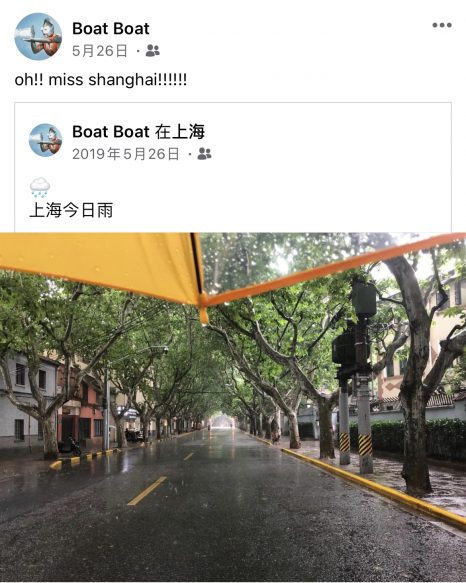 Submitted to Visual Diary Archive by 張小船 Boat Zhang for 2020-06-30
Submitted to Visual Diary Archive by 張小船 Boat Zhang for 2020-06-30
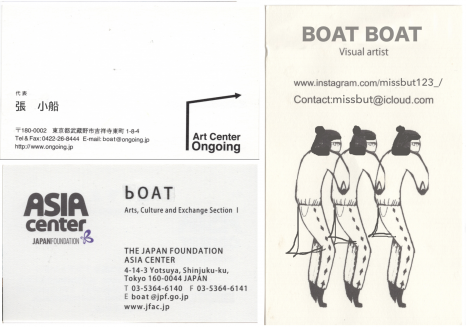 Submitted to Visual Diary Archive by 張小船 Boat Zhang for Fotini
Submitted to Visual Diary Archive by 張小船 Boat Zhang for Fotini
But you want us to know your name. 張小船, big B – big O – big A – big T (x2), little b – big O – big A – big T. I had initially imagined the Fotini exercise to locate searches for meaning, like when we take photos of pages from books to replace taking notes, or record signs as a way of remembering. You’ve shared yourself with us here, in a few guises but you all the same, funnily captured in a print format that is mostly outdated, though it makes sense in the context of you living now in Japan and with what I had asked you before in an audio recording also dedicated to you. So yes, ‘a lot of Boat’——meaning, and a string of things to remember.
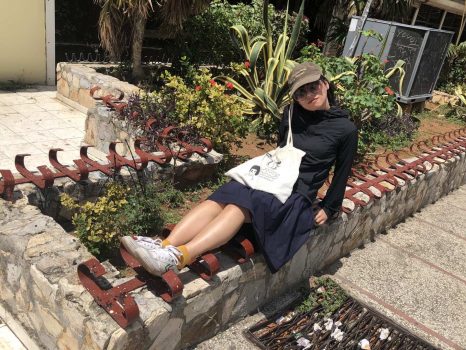 Submitted to Visual Diary Archive by 張小船 Boat Zhang for 京蘊 Anouchka
Submitted to Visual Diary Archive by 張小船 Boat Zhang for 京蘊 Anouchka
You appeared again with Anouchka, and it was so surprising to see you, ordinarily so shy, now leaning back in this very forthright position, looking at the camera confidently, even if hidden under a cap and sunglasses. Those metal bars must be the Cuban counter to the kind of structures they put in the parks and underpasses of Hong Kong——manmade objects to keep people from public spaces. No loitering, no sitting, no sleeping. But there you are, sitting defiantly on top of them, and though it must be quite uncomfortable, you reveal in the caption the immunity offered by being in the eye of a crush. Now he is crushed in prison and your small secret opened up in the maze of someone else’s archive.
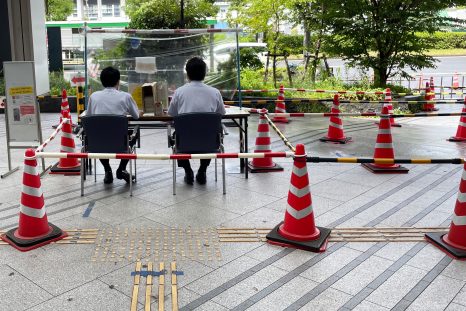 Submitted to Visual Diary Archive by 張小船 Boat Zhang for Nisan
Submitted to Visual Diary Archive by 張小船 Boat Zhang for Nisan
Nisan would probably not be pleased that I’ve translated her idea for a continuous line among discrete objects in this way. So maybe it is fitting that your image leaves a very small gap in the line, which, if we were to put together with the other photos, would break the horizon. It’s not certain whether this subtle subversion on your part was purposeful or simply a visual opening of the ‘rules of participation’, but I’m glad it would be you to do it, just as I am thankful that it would be you to tell me during a long and painful back-and-forth all the horrible things that have gone astray and still be my friend.
 Submitted to Visual Diary Archive by 張小船 Boat Zhang for Nina
Submitted to Visual Diary Archive by 張小船 Boat Zhang for Nina
And maybe that’s why the last one, Nina, is the one to end on, because it’s another intimate space between you and a lover. This time you are the photographer, but for all the power within that role it is a sudden fear from the sudden movement of his sleeping body that clicked this shutter. And this is quite a complex story for a mistaken photograph——at least compared to the majority that I had collected and cannot place at all except by virtue of the photographs taken before and after. Your photo for Nina bears similar warm tones as the ones that she has collected in her archive, though hers are mostly created by the redness of light seeping through skin.
…
I want thousands of beads of sweat from my body to seep through my skin and slip into an ocean that has one name on one side and another name on another. Sometimes these oceans are named after people, while you, on the other side from here, are named after the vessel that keeps us afloat on the sea. It was the most cheeky and romantic of things for your parents to do, but like these images, what I like most are for these smallest of intimacies to be laid bare in a plain space for anyone to know and see, the most subtle invitation for participation. An act of taking notice.
And after those long hours of talking about ‘getting people to do things’, it is still difficult to come up with answers. But you contacted me tonight as I wrote this text, asking for a favour.
So for now——simply——yes, of course.
Posted by 丫 | reply »the news makes me cry every morning
2021 July 01, Hong Kong
我剛剛下去樓下去買一罐啤酒「慶祝」今天的節日,在Circle K被找錢,發現其中包括了一塊1978年女英皇頭硬幣。回到我樓大廳,發現郵箱裡有妳寄過來的明信片,上面寫著「Still here」.
I just went downstairs to buy a beer to ‘celebrate’ the holiday today, and upon being given change at the Circle K, discovered amidst the coins one Queen Elizabeth head dollar dated from 1978. Returning back to my building, inside the post box was a postcard from you with a drawn eye of horus and the words, ‘Still here‘.
Posted by 丫 | reply »
notes for the academy of failure, 25-27 May 2018 and a slew of logos to support
“Illegibility, then, has been and remains a reliable source for political autonomy.”
- James C. Scott, Seeing Like a State: How Certain Schemes to Improve the Human Condition Have Failed (1999)
it’s an easy preemptive manoeuvre, maybe as a way of saving face, because we have been so institutionalised that consciousness becomes a way of negating the negation. “let me tell you i’m a loser, let me tell you before you find out for yourself, and you can never get me.” what does it mean to precede and gestate one another?
if preceding was a manner of not being defeated by you (insertion of Super Mario anecdote here), gestation was a stalling grammar of potentiality, latent and shadowy, unbecoming. but how do we unbecome one another, with one another?
he says “欠” appears only when ego exists, but really i didn’t mind feeling indebted to you. the hat was out, and i wanted to ask you a favour because i knew you could ask me any time, even if you didn’t. i wanted you to know that i owe you a lifetime. that was my way of staying connected to you. it was only a pity that after i thanked you for that one, you simply left, without a thought in your mind. i was hurt and angry, i am hurt and angry …because i thought you owed me an apology? fuck!
we’re back to the peculiarities of voice, i guess (play with the pronouns)
“S. loved the paintings, but as she was praising them, she knew they didn’t stand much of a chance in the art world. If R. made the same work but was twenty years younger, had different friends and used different words to describe them, they would be viable.”
- Chris Kraus, Absolute Love (2016)
images above from notes initially taken to prepare for a talk given at the Collaborative Studies Program (CSP), organised by the Asian Culture Research Institute (formerly known as Asian Culture Information Agency in Asian Cultural Complex), Gwangju, South Korea, August 2014. This overloading of prepositions recontextualises a later refabrication of the notes into jpeg images called “(An) Open (and) Failure”, part of Squatting Knowledges: Failure/s in a constellation and as a tribunal, curated by DiscLab Research and Criticism (November 2014 until an unknown date when the site was removed from the world wide web for reasons not known)
---
何穎雅 Elaine W. Ho will be an adjunct lecturer at the Academy of Failure: Pedagogies for the Unsuccessful, 25-27 May 2018 in Beijing, PRC.
anything fun going on
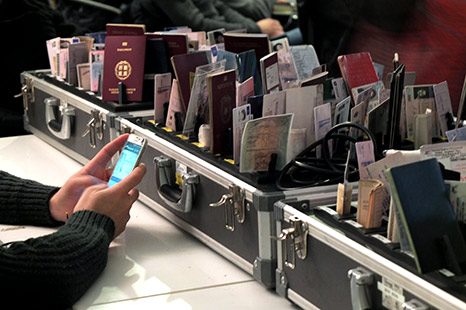
Is ‘Anything fun going on?’ a funny or weird question? I thought it was quite quotidian——’怎么样?’、’What’s up’——but if it all sounds too rhetorically polite and this context of digital correspondence should eliminate inquiries into some IRL, please accept my sincerest apologies.
unwarranted aside into anecdote. i was in a shopping mall the other day and while browsing a selection of a proud to be Texas-born international company’s fine wristwatches, the perky shop assistant asked, ‘So what have you been up to today?’, the unfortunate response being my fleeing the store. What should be reported of my day to a pouncing stranger tracking my eyeball movements to see which watch i’m attracted to——or as if now the policing and surveying has become so diffuse that everyone, even the shopgirl, is a viable check and measure on the status update of each and every consumer. Because yes we are all consumers now, taking precedent over ‘citizenry’, no more obviously felt than by way of those worldly practices people are able to maintain relatively easily in every place (latte, hamburger, uber ride). Of course, this is an observation of privilege coming from an (un)fortunate frequent traveler of ‘destinations’ that bear Starbucks logos as opposed to those other greater parts of the world still lacking decent infrastructure and education for its inhabitants, parts of the world that are still war-torn or ‘uncivilised’, parts of the world where the imperatives for freedom are not yet measured by the variety of packaged goods. And even if you don’t frequent Starbucks, or McDonald’s, or hitch uber, the fact that there are equally plentiful ‘organic’ and ‘artisanal’ backups is another minima moralia.
That is the fun going on, actually. We’re having so much fucking fun everyday we don’t know what to do with ourselves. Asking ‘anything fun going on’ is offensive, maybe, you’re right. Like swiping feeds, goddamit, information bloodsucking, ‘consumers are always right’.
‘Anything fun going on’ is like the airline attendant at the check-in counter who, since I’ve told her my profession is ‘artist’, asks where my most recent favourite exhibition has been. She is curious to know not only the city but the name of the institution, and for a moment i imagine her honestly believable sincerity. She proceeds to ask me which show was my favourite. A show that I have participated in or any show in general? Yours. Okay, hmmm… trying to be quick and effortless (speed and style as truth), I tick off a show that took place at a gallery in a different city. What is the name of the gallery? And as I name a name, I wonder about her interest in the institutions of culture, about the casual sophistication of big brothering these days, at this makeshift tin terminal that appears to have been built specifically for flights to the United States and Israel. This is perhaps due to the extra demands for security, both from the increased chance of malicious attacks and from the U.S. imposition of preemptive security measures abroad to prevent such attacks. So when a young Italian woman in uniform asks me about the fun details of my life, a subjective displacement has already taken place, and cynicism says it’s not a person talking to me, but the mechanisms of a system which have already striated us into one of a few alternating roles: policing agent, perpetrator, victim or just another piece of data. Friendliness as an appropriation for smoother extraction. Consumer interaction as marketing as profiling as social control as endless production.
You always put the state and the spy as counterforces, but I am afraid ‘the gravitational force of what is bourgeois’ within us entertains the story in its complexities of rendering forces ambiguous. Spy works for state. What is the name of the state? And how do you do today?
Posted by 丫 | reply »the light of day – or, the most intense fiery sadness inside the palest of blue
the difficulty of writing. therefore words become physically written entities. are animated by the postures and movements of the hand. the word becomes image. is placed in perspective. the natural rhythms of speech and of reading contorted. a video on writing:
act 1:
the street is where it finally played out, no confining corners of a room, simply a street and a doorstep and a door. a door that remained closed. closed that night and all the nights after. closed for several years. there were a few words there on the street, an evening chill picking up, words uttered from mouths tightly locked into position, not once breaking out into smile, no more spontaneities. now i remember it was an iron. the last object that passed between us. an iron. your iron. my iron. no ironing board. the irony. an iron with no more spontaneities. all those years summed up into the exchange of a single iron. a pink iron.
act 2:
you entered the studio that day and it filled the room. eyes locked and we understood. a kind of understanding that was hard to come by in those days. “we paid people 50 kuai to cry”. leaving the party early i cycled to the apartment that night, shared by several, it was only you there, you and a dvd menu on loop, the same jingle over and over again, you kept emphasizing the word ‘taken’, ‘taken’, ‘taken’ – i guess it was the opposite of what i was getting – the other word that night ‘transgressive’ – you and bataille – he and whitman – i couldn’t do it – sorry bataille – sorry whitman – i couldn’t do it – so much for ‘transgression’ — whenever i revisit the room, you are both there, bataille and whitman, bataille, whitman and me and the king-size bed. the torrent of words finally gets me writing on afternoons alone in the house, just before the onset of twilight.
act 3:
a gallery space, half emptied out, i keep going back there, the mounted and framed photographs are placed on the floor, leaning against the wall, a few are supported by the pillar in the middle of the space, you try to get them to leave, to let them leave us behind, but there is simply no subtle way of doing it and you mutter at them clumsily, they leave, we are left, the afternoon sun is slowly disappearing, the lights are left off, we talk, walk around and shout, until we settle behind the reception counter, a chair and a wall for support, we can do this but we can’t do that, what do you want from me? don’t ask that of me! she tells me his knees were shaking all the way on subway ride back home, i was never shown shaking knees. now, i only ever meet you in that gallery space. we don’t exchange words just glances and parts of our bodies in a deafening silence, the afternoon sun perpetually setting.
act 4:
an early spring evening, i keep trying to leave: “i have a party,” “a party to go to,” “a housewarming party”, but something keeps me at your side all night, first we sit at the “less important people table” and are seated next to each other, after more guests stream in we are both upgraded to the “more important people table”, again placed next to one another. what luck! finally settling into a comfortable position we continue our conversation, your leg brushes against mine a few times, i recall her remark about “woody men”. and i can’t stop staring at the eyes. can’t stop. the whole night – no rooms here, but the chambers of eyes to revisit “an intense fiery sadness” i describe to her later “inside the palest of blue”.
.
treatise on the university of disaster
I had no idea what he was talking about, really. Reverberations pass away easily, behind the ears, at pressure points, when cooking. Roles are performed in adequate fashion, resulting in countering feelings of inadequacy, words flow, nothing is communicated. The treatise is about performance, perhaps. Insinuation of a guise, this is not real, whichever how you really feel. No, really. Keeping it real.
Had no idea what i was talking about really. Sometimes the emotions would arise, and one would find oneself unable to act appropriately, a subjective propriety, a nicety. Trying not to look too hard at his pimples. The palimpsest of his pimples, because even thirty-somethings get them, oh yes, renewal, we can feel like teenagers again and again and over again.
Your postmaturity, maybe. Treatises that we haven’t written yet, half-thoughts, names dropped, another drifting off on the bus again. No, there. When the girl with the ponytail steps on my foot in the bus, I notice her, her captivated audience of fellow passengers, a spectacle in action. She is playing paper-rock-scissors with a boy shorter than her, perhaps that is what it makes it more obvious that he is cheating the game, as his eyes steal glances upwards on every count, towards her poised hand, ready to draw. If he is quick he can change his draw at the last moment, just after he’s seen her paper or rock or scissor coming down like an absurd call of judgement. His is fickle and cunning at the same time. Paper wraps around rock. But each time the breath before the draw is prolonged just a bit longer; she knows his game. He knows she knows his game. And the game shifts a little bit, bus ride bumpy, to a different battle of suspense: who will cheat on the other first. the classic grid of one to another strategy, don’t call it war, it’s just the way things are. remember that lecture that we went to where you didn’t understand? Punnett for non-pundits, I’m on the bus and I could observe this moment for hours. fault or fancy? their fists are suspended in mid-air, holding on a bit longer than forever. this is a treatise on the university of disaster.
Posted by 丫 | more »kind of, sometimes

to the old lady working at the internet cafe, whom i could slam a hundred times in aftermath but only saw my childish smile in backwards retreat, we could make an example of you in our courteous, civilised new metropolis, as per a certain someone said i was often wont to do, some sort of ethnographic approach to what lack of humanity there may be in world of screens and headphones, of blank faces and pounding hearts, why in the world should i wish to make an example of you, sickly woman with cracked face who sits in the dark by day, your rule this world perhaps and i am mere observer, a hasty brushing off sends me away, without being able to engage in the very services that you offer. or the mistake that we make in this situation is that working for the money (the system that creates low wage working conditions, the worker that desires to fill this position for lack of better opportunity, because it is easy, because it is simply what is there) eliminates the very ‘you’ of this equation, for You, Other, are simply no longer there. This is not an issue of being looked down upon or prejudiced, it is the disappearance of another all together. Combined with the last 61 years of our lack of self, we come back in full force with an overbearing subjectivity that oppresses all not-self as well. it leads us to a form of exchange without humanity whatsoever, but what sort of presumption was that, anyway.

i cringed when he mentioned that words had been missing of late, but the lack of literature could have been a parallel to a similar decline of the sense of being. i am present, perhaps, in some way, a childish half-smile, but it’s only half-shock, a blinding before anger sets in, what was that about to solidify, hard-set equations, exchange is never all that, i kind of hate you sometimes, kind of, sometimes.
Posted by 丫 | reply »
